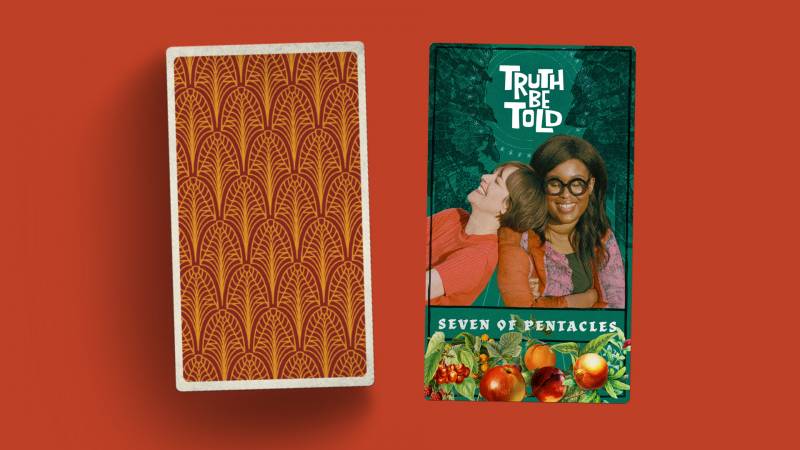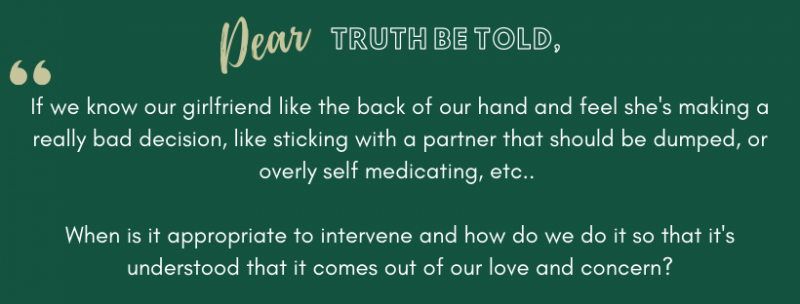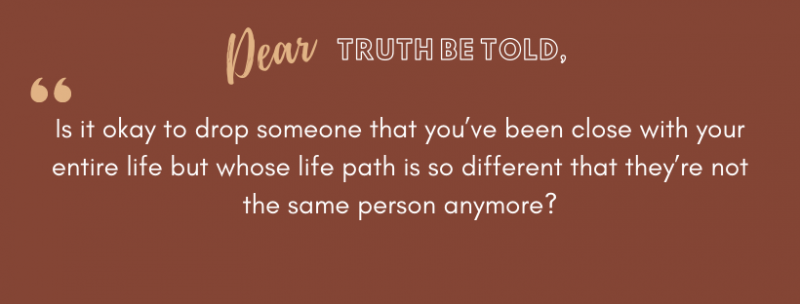“Active friendships are fully happening right now,” Friedman says. “You are in communication with each other regularly, you are up to date on the struggles and joys of that person’s life and you are connected. Passive friendships are ones where you still feel a great fondness and maybe a good bond, but you aren’t really keeping up. And finally, commemorative friendships are friendships that you’ve both moved on from and you don’t expect to ever come back to.”
Friedman says “I think there is a reason why it’s hard to evaluate a relationship with a lot of historical weight, because that does count for something. It is a special and valuable thing. But you have to think about what that weight means in real-time.” Friedman suggests having a conversation with the friend.
Some suggested language: “This is how I felt in our friendship in the past. I’m really not feeling that level of connection or we really don’t have shared interests anymore.” Engage in the conversation because there’s also some good information there in hearing about the level of investment the other person is feeling and the friendship.
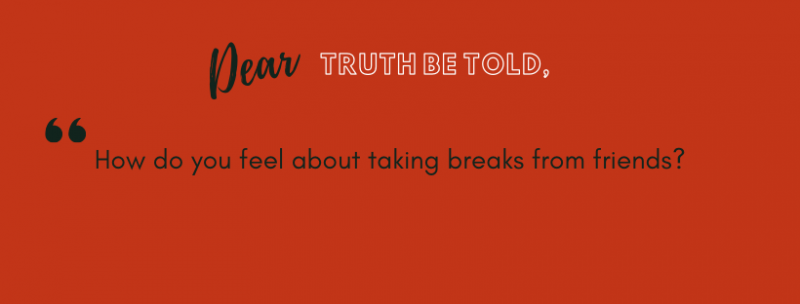
Sow took this question on. She said, “The language of taking a break usually means that it is on purpose but not really preplanned, where you drifted away from each other. I have friendships like that, where you drift away and then, one person makes contact again. It’s not the same, but you are once again both open to being in each other’s lives.” For this type of break, Sow says she doesn’t believe every friendship that you drift away from owes you a reconnection. “I have found that in the drift-away and come-back friendships, the only ones that have really worked is if we both individually did the work of figuring out why we were drifting away,” Sow says. “When we came back together, we were able to talk about it like grown-ups. So I do think that within the fabric of friendship, there is this kind of flexibility built-in.”
If an expected change is coming — a move, a pregnancy, a career change — here is some suggested language: “Hey, the unstructured time that we spend together, all of that is going to change. I’m going to be busier. I’m just not going to be able to do all the things that we do. We have very different lifestyles now. I’m really committed to figuring out how we are going to work through that because you are really important to me.”
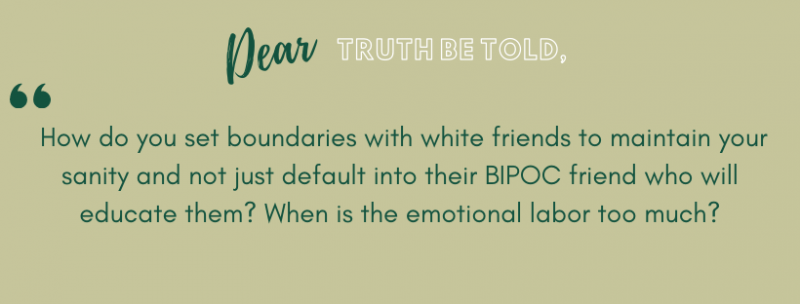
Sow also took on this question based on her personal experiences with her white friends. “I think that sometimes you really do have to ask yourself, is this person even my friend? And I think that at a fundamental level, a lot of times the answer is no,” Sow says. “In the instance that this person is your friend, I think that I am really lucky that race has been addressed thoroughly in all of my friendships with white people, in the sense where either we talk about it and we have a healthy relationship or it’s something that we do not talk about and, therefore, we are not the close friends that we say we are.”
Sow addresses the systemic nature of racism and the connection to individuals who are part of those systems. “I have people in my life that I don’t think are racist. That’s why they’re in my life. It does not mean that they’re not capable of perpetuating racism because that is just how that works.” Within Sow and Friedman’s interracial friendship, Sow says, “Years into our friendship we realized we had not talked about was: what does it mean when Ann is the person who is causing pain in our friendship? And that is the thing that I think anyone who intimately knows white people understands that is possible — a white person will cause you pain.”
Sow suggests making space to talk to the friend because it is really vital to your relationship thriving, or indicating that the relationship is not what you think it is.
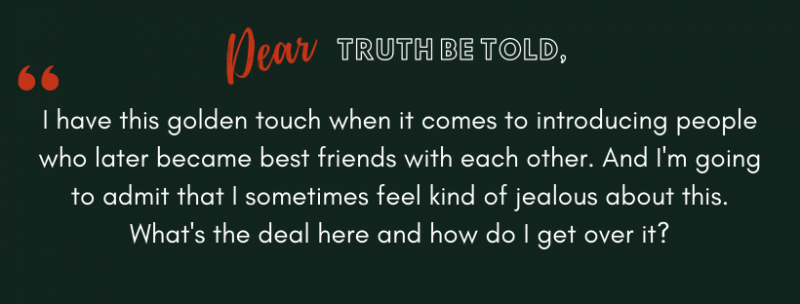
Both Sow and Friedman took this question on. Friedman started by recognizing the pattern of vulnerability. “There is an indication of, ‘I am always the middle man of a transaction between two people who fall in love. And then I am not so much a part of that.’” Both authors suggest being direct about what you are feeling because more than likely the friend will respond positively.
Friedman has suggested language on being proactive if you see your friends sharing their adventures: “Oh, I saw you guys had dinner. I would love to join you sometime.” Or, “Sometimes when you send me pictures of you two hanging out, I feel a little tender that I’m not a part of it. I really love your relationship. If you’re ever doing something that you could need a third for, I would love to join.”
“Friendship is the most generous and expandable kind of relationship you can have with someone you know,” Sow says. Both authors agree that every friendship is different and in order to have successful relationships, you have to learn to communicate on the level that every friendship requires. Bottom line, Friedman says, “there is no autopilot function for a relationship this important. You really have to stay working on it.”
Episode transcript can be found here.
Episode Guests:
Aminatou Sow and Ann Friedman, co-authors of “Big Friendship: How We Keep Each Other Close” & hosts of “Call Your Girlfriend” podcast
Recommended Books:
“Big Friendship: How We Keep Each Other Close” by Aminatou Sow and Ann Friedman
Sow and Friedman shared some of the books that have most informed their own views on friendship here
“How We Show Up: Reclaiming Family, Friendship, and Community” by Mia Birdsong
“Sula” by Toni Morrison
“Sabrina & Corina” by Kali Fajardo-Anstine
“When You Were Everything” by Ashley Woodfolk
“Communion: The Female Search for Love” by bell hooks
“Swing Time” by Zadie Smith
“The Nickel Boys” by Colson Whitehead
“A Little Life” by Hanya Yanagihara
“The Company You Keep: The Transforming Power Of Male Friendship” by David C. Bentall
“Not So Pure and Simple” by Lamar Giles
